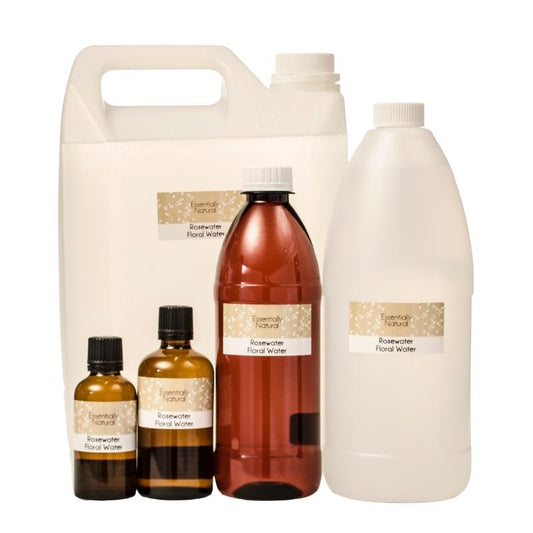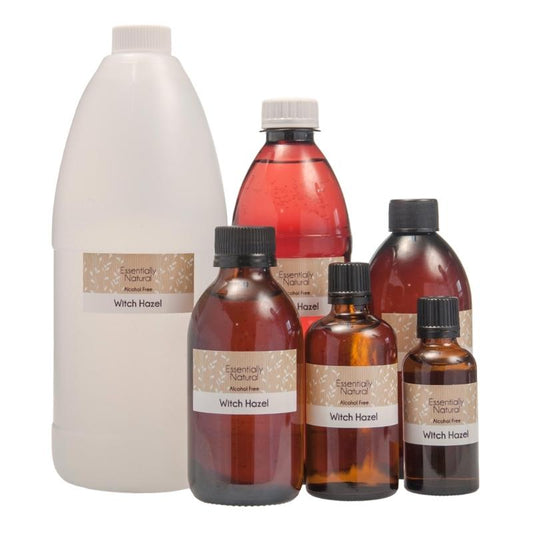
Do you need to use a toner?
Aiden van WykA thought many of us have had before - and maybe you're thinking it right now is "Do I really need a toner? What do toners do? I already cleanse my face, and my products have all the active ingredients I need.
Are toners a marketing trick?"
It's a totally fair question - especially since toners have gotten a bit of a bad rap online lately.
But hear me out: I'll try to give you a comprehensive explanation of toners - so you can decide for yourself whether they're worth the extra step in your skincare routine.
Deal?
What is a toner?
A toner is a thin, water-based product that you use after cleansing your face but before you apply any other product. Many OG skincare buffs may remember the initial editions of toners - and remember them with horror indeed. Why? Because they burned and they stank, as they typically were formulated to provide thorough cleansing through high concentrations of alcohol.
The problem with this is that it was too drying, and generally an unpleasant experience. Even though "suffer for beauty" is often treated as a valid mantra, suffering at this intensity could (and should) be avoided. Why traumatise your microbiome? Unlike love, your skin is not a battlefield and there is no need to nuke it.
What do modern toners do?
Modern toners have evolved to feature predominantly nourishing ingredients, with most formulations now built for sensitive skin. This decimates the viability of highly astringent toners. What modern toners do is:
- Rebalance pH:
Cleansers, being soapy, are often high in pH. Toners are used to bring your dermal pH back to healthy levels after a cleanse. If you don't balance your skins pH you could disrupt your skin barrier, have breakouts, redness, slow healing and reduce product performance - as products are often dependent on the pH of the skin. - Removes impurities after cleansing:
Certain toners, particularly when cleansed with a wipe, can be used as a deep follow-up cleanser. They help remove any residual impurities that might remain after your primary cleanser, offering antibacterial and mildly astringent benefits depending on their ingredients. This additional cleansing helps minimise the appearance of pores and remove any lingering impurities. These formulas more often than not contain a low concentration of alcohol. - Rehydrates the skin:
Being mostly water, toners wet the skin. This is great as many ingredients have improved penetration when the skin is damp. This is particularly true for humectants and water-soluble ingredients. Damp skin is also more permeable than dry skin as the expansion of the skins surface, due the moisture, can make penetration easier.
How do you best apply a toner?
Toners are often applied by moistening a cotton pad with it and sweeping the skin (from the centre of the face outwards, including the neck but avoiding lips and eyes). The problem is that disposable cotton pads are not very sustainable - unless you've discovered reusable toner wipes. What they do in Korean Beauty is pour the toner into their palms and gently pat it into the skin. Some folks are not too fond of that approach and instead spritz it onto their faces directly. The only problem with this method is that it doesn't involve any physical contact or wiping, so it's less effective at lifting away residual impurities from the skin.
Are there different types of toners? Are all toners' astringents?
Many people aren't aware that toners come in three distinct types, each serving a different purpose based on your skin's needs-but once you do know, it makes perfect sense.
- Bracers:
Bracers (otherwise known as fresheners) are mild and alcohol-free toners. Their focus is hydration, nourishment and soothing the skin, making it best for those with dry and/or sensitive skin. The main ingredients often would be Rose Water, Hyaluronic Acid and Glycerine. - Tonics:
Tonics are slightly more active than bracers - as they can include low concentrations of active ingredients and maybe even very low concentrations of alcohol. This makes it helpful for those with normal or oily skin and often includes extracts like Orange, Green Tea or Chamomile. Actives include Niacinamide or Lactic Acid, a gentle exfoliant. - Astringents:
Astringents are the strongest type of toners, with the highest percentage of alcohol and often containing other antiseptic ingredients. This makes it great for treating acne, but can be harsh and strip away your natural, protective oils. Witch Hazel is commonly used in astringents and other acne fighting ingredients like Salicylic Acid and Tea Tree.
Of course, toners are more of a spectrum rather than each toner strictly obeying categories. But it is up to you to decide how astringent or hydrating you'd like the toner to be, based on the ingredients you include.
What are other ways that toners are used?
Remember that toners are often mostly water. This makes them excellent as a water substitute in your creams, serums or using the toner in your face masks (Imagine a Kaolin Clay Mask with a Frankincense Toner? GLOW!). Do keep in mind the concentration of active ingredients already in your toner, for if your toner already contains Salicylic Acid or Glycolic Acid, you need to take that into account for your cream formula.
Climate and the necessity of Toners
Sometimes climate, seasons and your private environment might impact how necessary a toner would be. If you're in a drier season of the year, or live in a drier climate, toners might be more necessary for you. You might even appreciate leaning on a purely hydrating toner throughout the day just as a cool down and a plump up - and with Rose Water, do a spritz just because it smells lovely.
Are store-bought toners better than DIY toners?
If you look at the back of store-bought toners - it's mostly a combination of Hydrodsols, floral waters and preservatives. It occasionally contains active ingredients, though they're not very common. That makes toners the easiest product to DIY without risking a flop. Complex formulas like creams, serums and face washes have many factors that can go wrong. But with toners you can just use a pure hydrosol - meaning if all you're seeking from your toner is hydration and pH balance (and maybe a gentle astringent in Witch Hazel), you can very easily and affordably replace your toner.
The argument against toners
Everything you get in a toner you can get everywhere else
It is true.
If your cleanser is potent enough and pH balanced, you won't need a toner for pH balance. It is true, if you have a serum for soothing, you won't need a toner for that. You may not need a highly astringent toner if you have other ingredients to counter acne.
But let's use the unique way that toner is applied to our advantage.
The argument for toners
Toners are a way to apply potent ingredients in incredibly small doses. That means that actives and even alcohol, which can be too irritating in high concentrations, can still have its place here. As someone who struggles with acne, I need an astringent. But adding alcohol to my creams? Way too intense. That's where the unique limitation of toners becomes their strength. Look, we have watered down toners (figuratively and literally) to do other things. Things that your other products already handle. But that doesn't make the original purpose of toners irrelevant.
Toners were crafted for deep cleansing and acne. If you remove those ingredients and say it's no longer useful - then you aren't criticising toners, you're criticising the role of bracers in your skincare routine. And maybe that's fair - maybe astringents are too potent for your skin.
But I have huge pores.
I like astringents - and I actually enjoy that tight feeling on my skin. And I know to compensate for that tightness by making the rest of my skincare routine thoroughly nourishing.
Maybe an astringent can find its place in your routine by using it a few times a week. Maybe you don't need it at all. But that does not remove the validity of toners as a product.
A quick note on mature skin and toners
You know why K-Beauty is obsessed with toners? Because the real hero in K-Beauty is hydration! That's why K-Pop Idols look like glass dolls - if you poke their eyebrows, they pop like water balloons. You know what is also key in rejuvenating mature skin? Hydration again, my good friend.
Toners aren't just an extra step - they're an opportunity to bless your skin with nourishment and actives. Whether that be a Hyaluronic Acid Boost or a Buttermilk glow-up, the right toner will truly level up your skincare game. Don't underestimate what a well-formulated toner can do for that dewy, plump, idol-worthy skin.






















